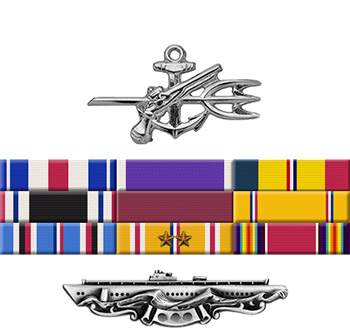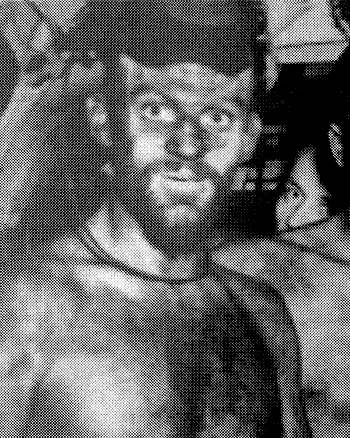
|
Howard L. Roeder |
 |
|||
| Rank, Service | ||||
Chief Petty Officer, U.S. Navy |
||||
| Veteran of: | ||||
|
||||
| Tribute: | ||||
Howard Roeder was born on March 13, 1915, in Ontario, California. He enlisted in the California National Guard on May 23, 1933, and served with Company D of the 185th Infantry from May 1933 until his honorable discharge on April 21, 1934. PFC Roeder reenlisted in the California National Guard on May 15, 1934, again serving with Company D of the 185th Infantry until his honorable discharge on January 11, 1937. He again reenlisted in the California National Guard on July 10, 1939, and this time served with Company C of the 185th Infantry until his honorable discharge on November 16, 1940. Roeder enlisted in the U.S. Navy on February 18, 1942, and completed basic training at NTC San Diego, California, in April 1942. He then attended Naval Construction training as a Powderman at Naval Construction Training Center Norfolk, Virginia, from April to May 1942, followed by service as a Gunner's Mate with the 5th Naval Construction Battalion at Norfolk from May 1942 to March 1944. Chief Petty Officer Roeder next served with the 7th Naval Construction Regiment from March to April 1944, and then with Underwater Demolition Team TEN (UDT-10) at the Naval Combat Demolition Training and Experimental Base at Kihei, Hawaii, from April 1944 until he was captured during a reconnaissance mission at Yap in the Caroline Islands while operating from the submarine USS Burrfish (SS-312) on August 19, 1944. He was held as a Prisoner of War by the Japanese until at least September 2, 1944, and sometime on or after that date he was executed by his captors. Chief Petty Officer Roeder was officially listed as Missing in Action and was given a presumptive finding of death on February 5, 1946. His remains have never been recovered. |
||||
|
||||

